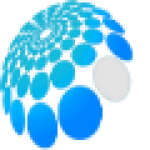what is mutation?
1 Answer
Mutation is a permanent, heritable change in the nucleotide sequence or the process by which such a change occurs in a gene or in a chromosome. There are two major types of mutations: small-scale and large scale. Small-scale mutations are genetic mutations, often in the form of substitutions, deletions, and insertions of one or more nucleotides. Mutations occurring in certain regions of chromosomes are large-scale mutations. This form of mutation can be lethal or result in serious conditions or syndromes.
Types of mutation are:
| Substitution: A substitution is a mutation that exchanges one base for another (i.e., a change in a single "chemical letter" such as switching an A to a G). Such a substitution could:
|
|
Insertion: |
| Deletion: Deletions are mutations in which a section of DNA is lost, or deleted. |
| Frameshift: Since protein-coding DNA is divided into codons three bases long, insertions and deletions can alter a gene so that its message is no longer correctly parsed. These changes are called frameshifts. For example, consider the sentence, "The fat cat sat." Each word represents a codon. If we delete the first letter and parse the sentence in the same way, it doesn't make sense. In frameshifts, a similar error occurs at the DNA level, causing the codons to be parsed incorrectly. This usually generates truncated proteins that are as useless as "hef atc ats at" is uninformative. There are other types of mutations as well, but this short list should give you an idea of the possibilities. |
